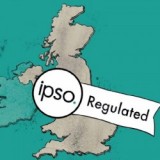 The press watchdog has rejected a former council clerk’s complaints against two weekly newspapers after they reported on his suspension from the role.
The press watchdog has rejected a former council clerk’s complaints against two weekly newspapers after they reported on his suspension from the role.
Newsquest sister titles the Penarth Times and the Barry and District News both reported on David Roberts’ suspension from the role of clerk to Sully and Lavernock Community Council following a long-running invesitiation into allegations surrounding his conduct.
The allegations included claims made at a personnel hearing that inappropriate ‘adult’ images had been found on his work computer, an accusation which a subsequent hearing ruled were unfounded.
But the Independent Press Standards Organisation said the newspapers had been entitled to report the original allegations which were backed up by minutes taken of the committee hearing.
Mr Roberts complained to IPSO under Clause 1 (Accuracy) and Clause 2 (Privacy) of the Editors’ Code of Practice over two stories published by the newspapers in March and April 2018.
The first story reported on concerns taised over the council’s handling of the investigation into Mr Roberts who had been suspended in September 20157 “after concerns were raised about his performance.”
It went on to detail some of the allegations made against him, which also included having used a council printer to create flyers for an outside event and doing work for other organisations during work hours.
The second story reported on a further meeting of the council during which members of the public had “clashed” with councillors over their handling of the complainant’s suspension.
Mr Roberts said the stories were inaccurate in breach of Clause 1 because they reported on allegations which he said were unfounded,
During the course of the investigation, he provided a further report on the allegations, undertaken by a consultancy, which he said had found that there was no case to answer on several of the allegations raised, including in relation to the downloading of inappropriate images, and him undertaking work for other bodies on council time.
However the newpapers denied any breach of Clause 1 saying they had accurately reported allegations made against the complainant by a third party at a meeting of the council’s Personnel Working Group, and had presented them as allegations, not fact.
They accepted there was a minor inaccuracy in the report, in that a grievance procedure against certain councillors which had originally been closed, had been reopened at the time of publication, but the papers had offered to publish a clarification on this point.
Mr Roberts also said the stories breached Clause 2 because they were based on information shared during a ‘private’ section of a council meeting, from which journalists were excluded.
But denying the breach, the newspapers said it was debatable whether there was a reasonable expectation of privacy in relation to matters of public administration and the business of a council, and that in any event, the publication had weighed any such expectation against the public interest in reporting the matter.
In its ruling, IPSO said the original story had been “an accurate report of allegations that had been made about the complainant at a meeting of the council’s Personnel Working Group, as evidenced by the minutes provided by the publication.”
The allegations regarding inappropriate content and the use of the council computer for unrelated work were also raised in the briefing note provided in relation to the audit.
It said: “The publication was entitled to report on these allegations, and had accurately presented them as such. The fact that a subsequent consultancy report had found that there was ‘no case to answer’ on several of the allegations made did not make the contemporaneous report inaccurate.”
On the privacy issue, the watchdog said there was a “clear justification for revealing the information reported on” in that the allegations related to misconduct in a public office were “a matter of potentially serious public concern.”
The complaints was not upheld and the rulings can be read in full here and here.

 Follow HTFP on Twitter
Follow HTFP on Twitter